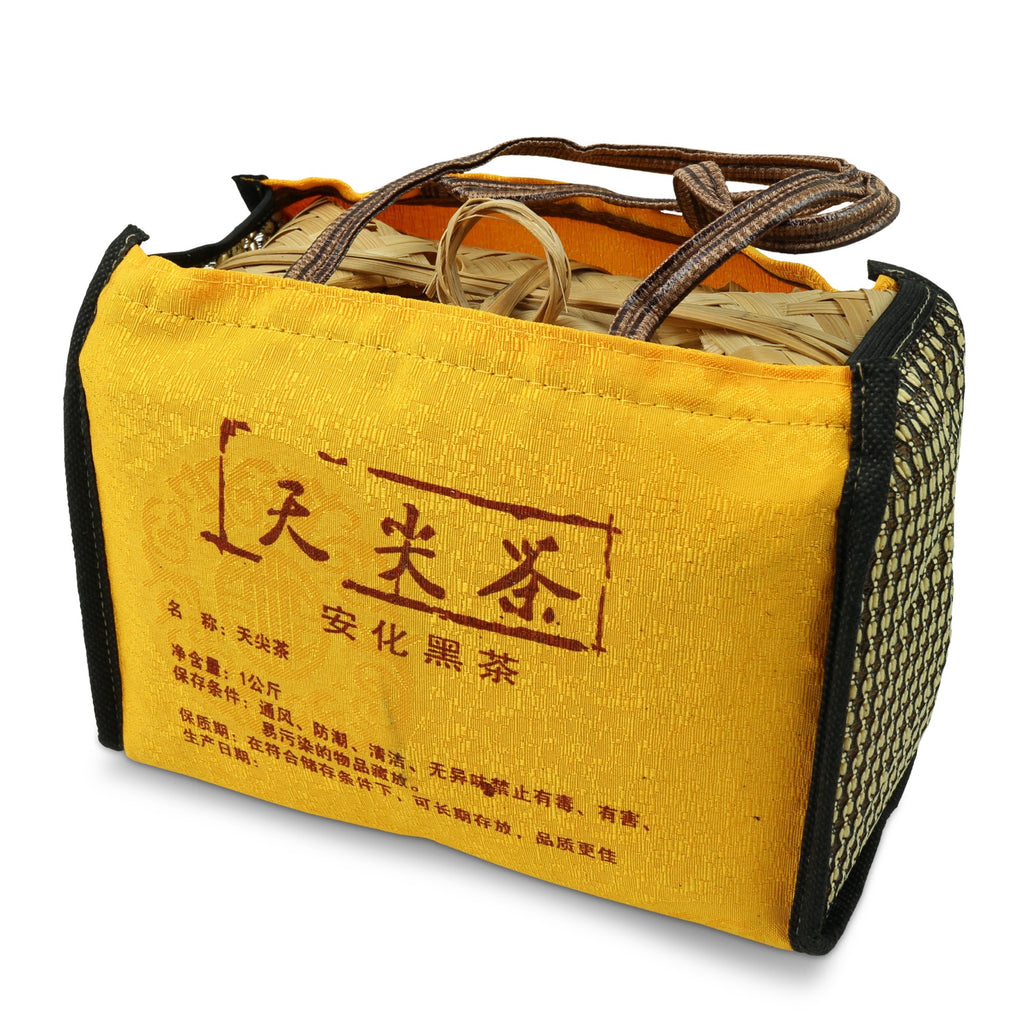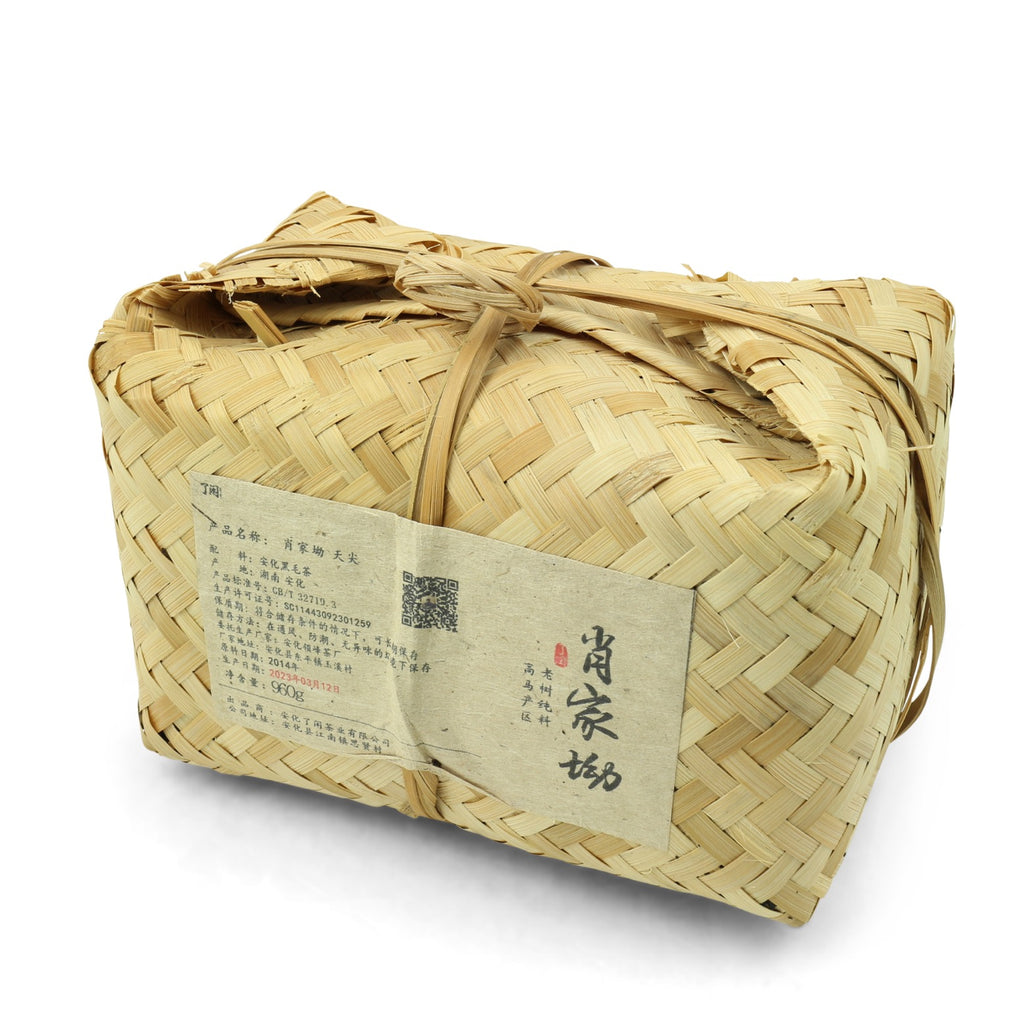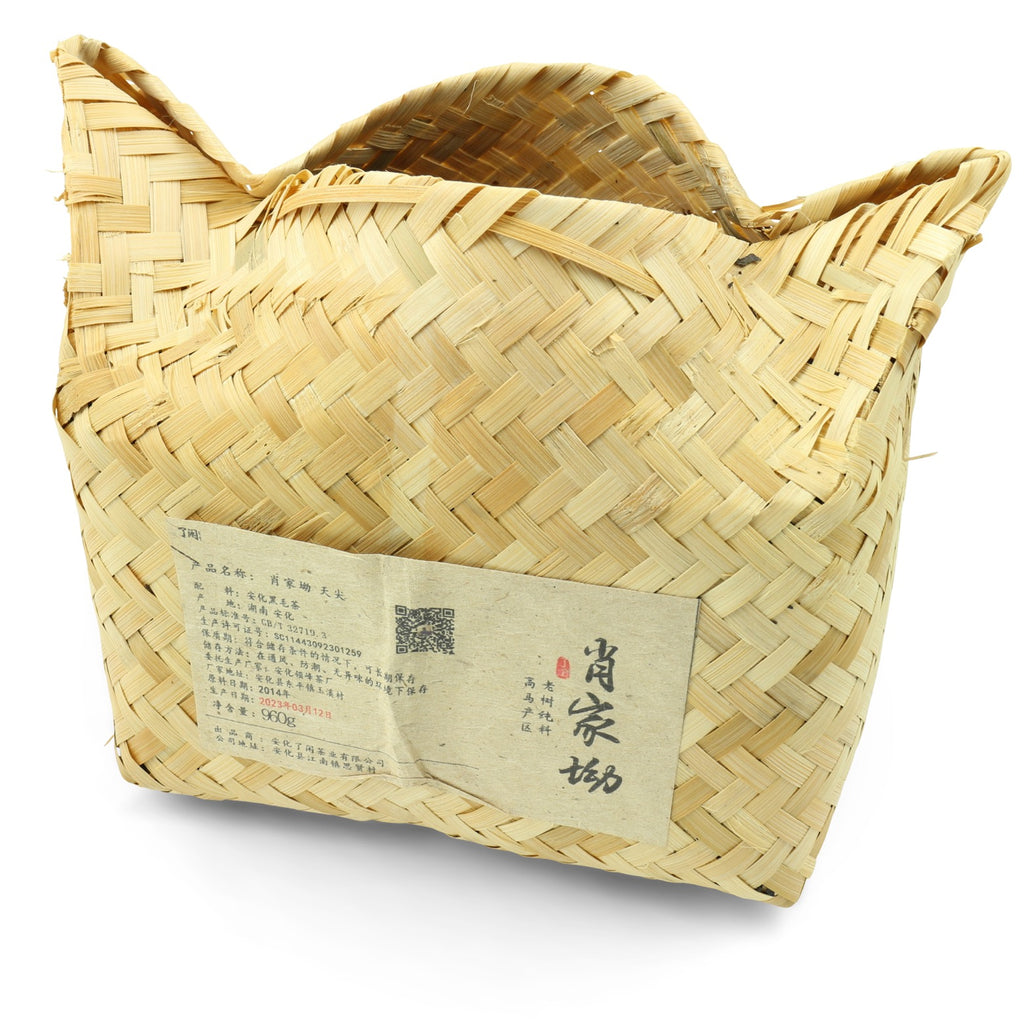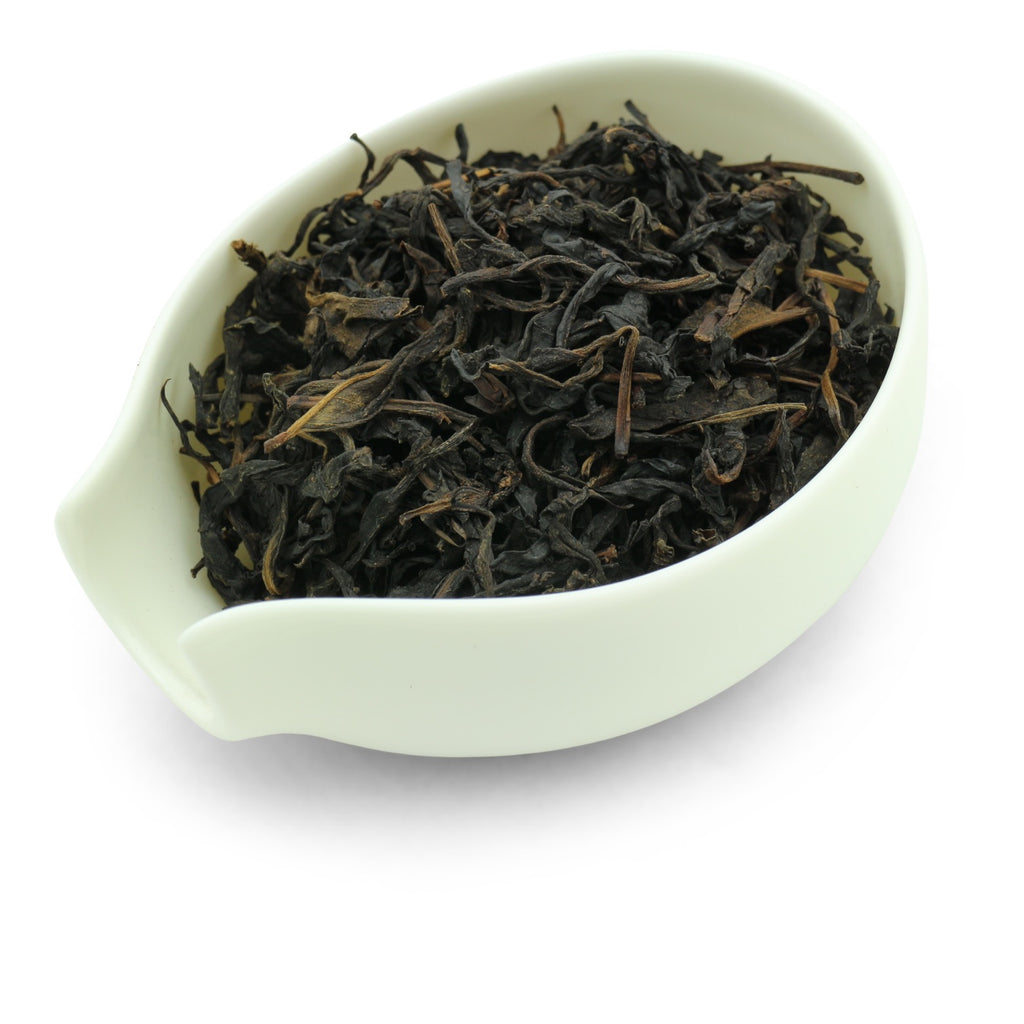Lao Shu Tian Jian 2014
A tea lauded by Traditional Chinese Medicine, its almost ten years of ageing has rendered this post-fermented tea particularly gentle. Often are these finer one bud and two leaf plucks found sleeping in bamboo baskets after a particular treatment of firing, rolling, piling for up to 24 hours; a crucial hydrothermal step for microbial activity, before ending with a roasting over pine wood. The result is a mellow brew that has developed a mature sweet fragrance with time. The flavour is somewhere between a raw pu’er and a roasted rock tea: earthy, oyster mushrooms, eucalyptus, and smoke with a touch of saltiness breeding from the consistently clean brew. The Chinese Tibetans and Mongols have taken clue in boiling this tea and enjoying its tenacious form.
About the producer
We were approached by Huang Xiaofeng, who runs a small-scale tea company in Anhua, with a portfolio of quality heicha or dark teas from the alpine forests of the region. Their focus on local tradition and authentic techniques took our intrigue immediately that we decided to source a bunch of heichas to take on an exploration of a tea category lesser known to us. The raw materials are sourced from their 100-acre Laocong old tea garden, a biodynamic environment more than 700m deep in the mountains and far away from local villages and roads.
 Image to the right: Huang Xiaofeng tending to fixed tea; image to the left: Tea farmers carrying their pickings down the mountain.
Image to the right: Huang Xiaofeng tending to fixed tea; image to the left: Tea farmers carrying their pickings down the mountain.- ORIGIN: Gaomaerxi, Anhua, Yiyang, Hunan, China
- MEANING: Old tree heaven tips (lao shu tian jian)
- CULTIVAR: Anhua qun ti zhong
- HARVEST TIME: Spring 2014
- TASTE: Oyster mushroom, eucalyptus, pine smoke
- Quantity: 6g / 500ml
- Water temperature: 100°C
- Infusion time: 5 min
- Quantity: 5g / 100ml
- Water temperature: 100°C
- Several short infusions
After an initial rinse, start with few seconds. Increase the brewing time at each following infusion. For best results in gongfu cha, brew in a Yixing teapot.









